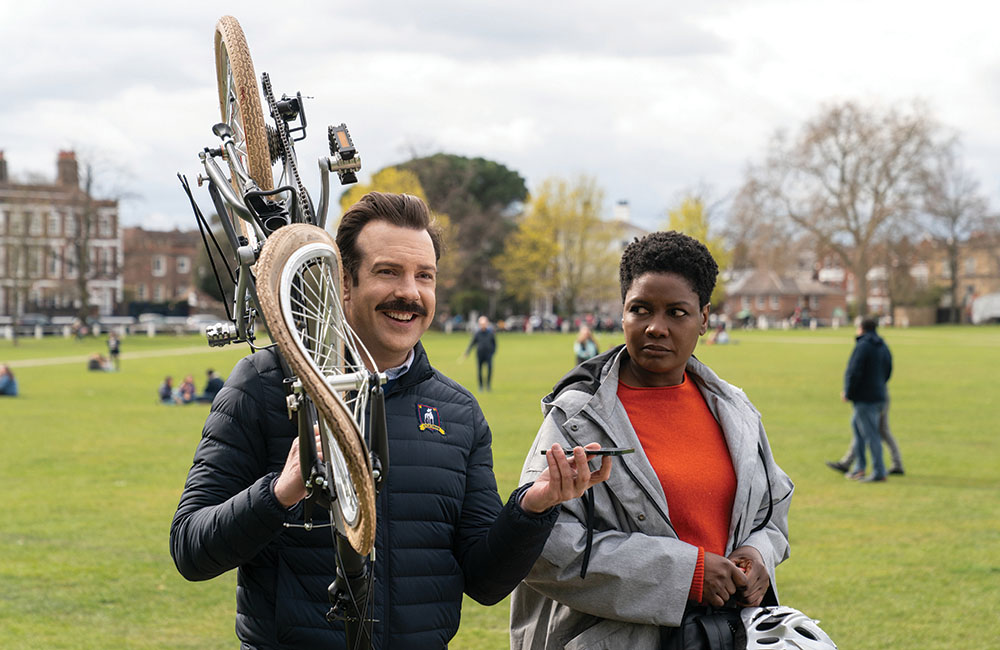
Courtesy of Apple TV+

For British actress Sarah Niles, therapist Sharon Fieldstone on Ted Lasso was one of the toughest roles in her career. The job was in the middle of the pandemic, and the role came to her as she was hoping to do more comedy after her serious work on I May Destroy You as well as a role in a version of Anton Chekhov’s play Three Sisters set in Nigeria. She admits that she hadn’t watched Ted Lasso before auditioning for it, to prepare for the fact that the second season isn’t as upbeat as the first.
Instead, it shines light on Ted’s (Jason Sudeikis) mental health struggles, and Niles plays the therapist who eventually succeeds in breaking through Ted’s optimistic, wisecracking surface and revealing what’s underneath. Niles says she loved her time on the show and that she and Sudeikis worked well together to prepare for the therapy scenes they shared.
“Jason gently coached me in terms of saying, ‘Just trust in what you’re doing,’ ” Niles tells THR. “Sharon is probably one of the hardest roles that I’ve played. That stillness, that calmness, and also being that confident, strong character … it’s such a balancing act between allowing her to show that truth and care, and being up against someone who’s über positive and light while not coming across as hard.”

Courtesy of Apple TV+
Ted Lasso also places its female characters and their friendships at the forefront of the show, most notably Hannah Waddingham’s Rebecca Welton and Juno Temple’s Keeley Jones. (Niles and her co-stars Temple and Waddingham each earned an Emmy nom for best supporting actress in a comedy series.) Yet these women are very misunderstood at the beginning, and Niles feels the same way about Dr. Fieldstone, who may come across as uptight and unemotional at first: “[Rebecca] appears as this strong, tall woman, and you feel like she’s been a woman that’s been scorned. She is vulnerable, and she is trying to find agency and find her own space. We as women don’t often get the chance to say we’re good at something without feeling that there might be some pushback from that. It was really important to find a place with a character like that, and [Sharon] is perfect. She’s Black, she’s British and she’s on her own. She doesn’t have the loved ones that soften her around the edges.”
Portraying a therapist onscreen came with pressures to “do it right,” says Niles, adding that she also felt a personal connection to the role. She’s in therapy herself, and she had family members and friends die during the pandemic, a time in which conversations about mental health heightened. “I’ve always felt strongly about mental health,” she says. “When you’re talking about sportsmanship, they think it’s about the physical strength, but it’s also important to have that mental strength in order to do the best work. But I had to also trust in my abilities, set my insecurities aside and just deal with the job at hand. Love, care and vulnerability are so important.”
Of Dr. Fieldstone, Niles says, “I love that character, and she’s taught me to trust in myself, warts and all. I feel like there’s so much more I can do, and I’m really excited.”
This story first appeared in an August stand-alone issue of The Hollywood Reporter magazine.